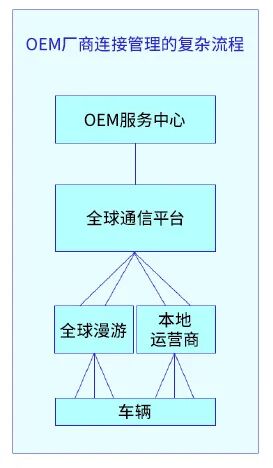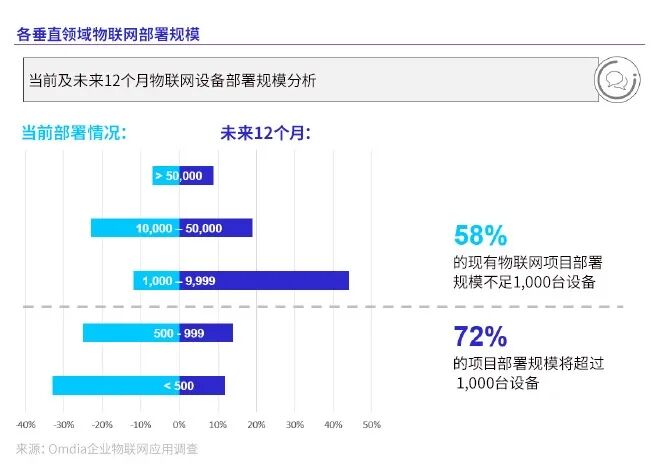
 Source: Telenor IoTIoT Think Tank ReprintAutomakers, like other businesses or consumers, expect vehicles to remain seamlessly connected at all times.No matter which market the vehicle is launched in, or where the user drives, automakers hope that once the connectivity service is activated, the network operator can ensure that the vehicle remains connected.Ensuring seamless connectivity for vehicles sold across countries and regions faces numerous challenges. Typically, hardware must support multiple frequency bands and communication standards, and future technology upgrades must be considered to ensure proper operation throughout the vehicle’s lifecycle. Additionally, obtaining cost-effective connectivity services and meeting local regulatory requirements also pose challenges. Even when vehicles cross borders, seamless connectivity must be provided. Users do not want to worry about switching networks or encountering signal coverage blind spots.
Source: Telenor IoTIoT Think Tank ReprintAutomakers, like other businesses or consumers, expect vehicles to remain seamlessly connected at all times.No matter which market the vehicle is launched in, or where the user drives, automakers hope that once the connectivity service is activated, the network operator can ensure that the vehicle remains connected.Ensuring seamless connectivity for vehicles sold across countries and regions faces numerous challenges. Typically, hardware must support multiple frequency bands and communication standards, and future technology upgrades must be considered to ensure proper operation throughout the vehicle’s lifecycle. Additionally, obtaining cost-effective connectivity services and meeting local regulatory requirements also pose challenges. Even when vehicles cross borders, seamless connectivity must be provided. Users do not want to worry about switching networks or encountering signal coverage blind spots.

If connecting vehicles were easy, then large automakers would become mobile virtual network operators (MVNO), managing related affairs themselves. However, the reality is that most automakers have recognized: a better approach is to collaborate with network operators that possess expertise and capabilities to provide users with the best experience. When evaluating network operators, automakers should certainly choose a partner with global coverage and reasonable rates, but other factors must also be considered in the decision-making process. The impact of operational convenience and network stability on user experience should not be underestimated, and leveraging potential cost advantages offered by operators is also important. Collaborating with well-known operators that have negotiated global rates can ensure that vehicles are always connected to the best network at favorable rates. Roaming is an important tool that quality network operators can leverage. Operators, through unique advantages in large-scale roaming contract negotiations, often secure better rates than automakers would achieve by signing limited data agreements with local operators individually.Equally important is that operators with quality networks often have advantages in securing more favorable pricing plans. Automakers should seek partners that have excellent network assets, strong brand power, and scalable operations to ensure their vehicles enjoy the best network connectivity at competitive prices.

Adopting roaming solutions not only simplifies network management for automakers but also significantly enhances flexibility and scalability by supporting multi-network access, compared to solutions that rely on a single local operator, which are often limited by coverage blind spots. When network services experience issues, only one operator needs to be contacted. Furthermore, automakers and dealers wish to leverage professional expertise to handle user issues related to network connectivity, service activation, or billing. Ideally, operators should be able to represent automakers in handling these matters.
Operational Expertise
As some automakers attempt to change the traditional dealership model and shift towards online sales and direct channels, selecting the right network operator becomes increasingly important. Given the challenges faced by automakers, what key factors should other companies looking to expand into IoT consider when choosing a network operator?From an operational perspective, the network operator chosen by automakers must not only operate in compliance but also enable automakers and users to easily manage and navigate connected vehicles and software-defined vehicles (SDV). Choosing the right network operator will eliminate many obstacles in the global deployment process for automakers. Operators can provide the necessary local operating licenses, local business layouts, and billing capabilities, which are often lacking in less capable operators. Quality network operators can also offer real-time frontline technical support to customers.

In terms of in-vehicle infotainment services, most markets require automakers to not only have network connectivity partners but also that these partners be registered locally as Internet Service Providers (ISP) to provide in-vehicle Wi-Fi and other services. Internet Service Providers must comply with local regulations to provide network services to consumers and must complete registration with relevant regulatory agencies. In most mature markets, the internet service industry has regulations such as “Know Your Customer” (KYC) that require companies to collect personal information such as user names and addresses and verify them against government official documents. These measures are designed to prevent fraud risks before issuing SIM cards or activating in-vehicle networks. Quality network operators are well-versed in compliance operations and can effectively monitor accounts associated with their SIM cards, leveraging their global presence to assist automakers in expanding into regional markets. For devices that need to frequently operate across borders, operators must have a comprehensive understanding of the challenges to ensure a good user experience. The devices provided by operators should be able to switch to local Internet Service Providers or establish collaborative mechanisms with other operators to achieve relevant functionalities through roaming.
Lessons for Other Companies

Currently, most IoT deployment projects not only see an increase in the number of devices but also often expand their geographical coverage. Given that vehicle connectivity management involves multiple layers, its complexity can be said to exceed that of other verticals. However, the view that connectivity management holds little value in other verticals is misguided. Not all companies’ deployment scales are comparable to those of automakers, but IoT deployment is equally critical to business. Many companies are as price-sensitive as automakers, making the choice of the right network operator crucial. Many enterprises lack the technical capabilities that well-known operators possess, and this specialized technical capability is often key to large-scale IoT applications. Rapid time-to-market is a core requirement, and quality operators can not only assist companies in efficient deployment but also provide one-stop solutions covering connectivity services and even device procurement.
Click at the end of the article“Read the original text” to download the English version of the report

For meeting requests or more information, please contact the regional sales manager:
Shanghai
Liu Gengci (Lily Liu)Email:[email protected]Phone: +86-156 5110 2043ShenzhenLi Qing (Kimo Li)Email:[email protected] Phone: +86-159 2001 4649Gan Tian (Arthur Gan) Email:[email protected] Phone: +86–136 8681 4706
About Telenor IoT
Telenor IoT is the IoT business brand of Telenor Group, a globally renowned telecommunications operator, providing comprehensive IoT solutions. As one of the world’s leading IoT solution providers, Telenor has been offering global IoT connectivity services, cloud services, and professional support to businesses of all sizes for over 20 years.
Telenor IoT manages over 20 million connected devices for customers in approximately 200 countries, serving global enterprises such as Volvo, Scania, Hitachi, Verisure Securitas Direct, and Fiserv. In the Nordics, IoT solutions are provided through Telenor’s local entities, while in other regions, Telenor Connexion offers IoT solutions for large multinational enterprises that require customized products, services, and professional support.
